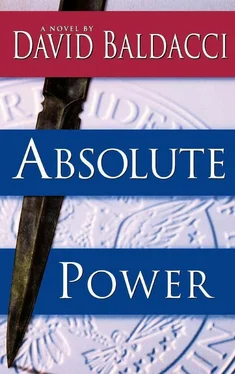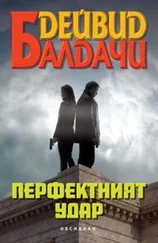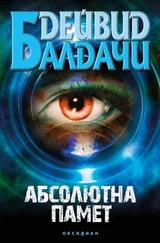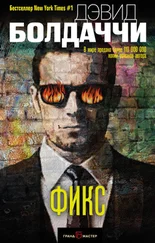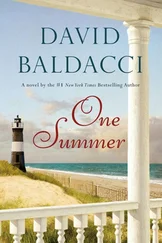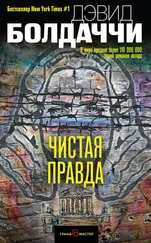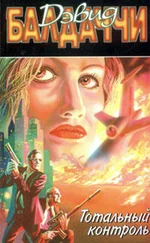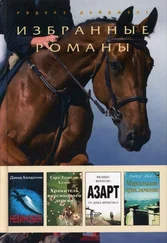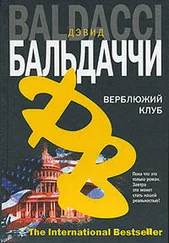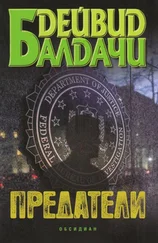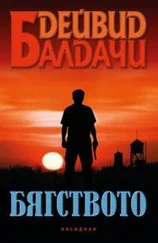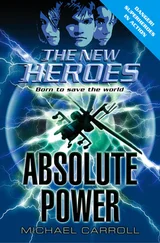Richmond slid an arm around the old man’s shoulders. In the background microphones dangled on long poles. Like giant rods and reels, they surrounded the pair despite the collective efforts of the men’s respective entourages.
“Walter, I’m going to get involved in this. I know some people will say it’s not my job and in my position I can’t become personally involved with anything. But goddammit, Walter, you’re my friend and I’m not going to just let this slide away. The people responsible for this are going to pay.”
The two men embraced once more as the photographers popped away. The twenty-foot antennas sprouting from the fleet of news trucks dutifully broadcast this tender moment to the world. Another example of President Alan Richmond being more than just a President. It made the White House PR staff giddy thinking about the initial preelection polls.
The television channel-hopped from MTV to Grand Ole Opry to cartoons, to QVC to CNN to Pro Wrestling and then back to CNN. The man sat up in bed and put out his cigarette, laid the remote down. The President was giving a press conference. He looked stern and appropriately appalled at the abominable murder of Christine Sullivan, wife of billionaire Walter Sullivan, one of the President’s closest friends, and its symbolism of the growing lawlessness in this country. Whether the President would have made the same pitch if the victim had been a poor black, Hispanic or Asian found with his throat cut in an alley in Southeast D.C. was never addressed. The President spoke in firm, crisp tones with the perfect trace of anger, of toughness. The violence must stop. The people must feel safe in their homes, or at their estates in this particular case. It was an impressive scene. A thoughtful and caring President.
The reporters were eating it up, asking all the right questions.
The television showed Chief of Staff Gloria Russell, dressed in black, nodding approvingly when the President hit key points in his views on crime and punishment. The police fraternity and AARP vote was locked up for the next election. Forty million votes, well worth the morning drive out.
She would not have been so happy if she knew who was watching them right this minute. Whose eyes bored into every inch of flesh on both her and the President’s faces, as the memories of that night, never far from the surface, welled up like an oil fire spewing heat and potential destruction in all directions.
The flight to Barbados had been uneventful. The Airbus was a vast ship whose massive engines had effortlessly ripped the plane from the ground in San Juan, Puerto Rico, and in a few minutes they had hit their cruising altitude of 36,000 feet. The plane was packed, San Juan acting as a feeder for tourists bound for the clusters of islands that made up the Caribbean vacation strip. Passengers from Oregon and New York and all points in between looked at the wall of black clouds as the plane banked left and moved away from the remnants of an early-season tropical storm that had never hit hurricane status.
A metal stairway met them as they departed the aircraft. A car, tiny by American standards, shepherded five of them on the wrong side of the road as they left the airport and headed into Bridgetown, the capital of the former British colony, which had retained strong traces of its long colonialism in its speech, dress and mannerisms. In melodious tones the driver informed them of the many wonders of the tiny island, pointing out the pirate ship tour as the skull and crossbones ship pounded through still rough seas. On its deck, pale but reddening tourists were plied with rum punch in such levels that they would all be very drunk and/or very sick by the time they returned to the dock later that afternoon.
In the back seat two couples from Des Moines made excited plans in chirrupy patters of conversation. The older man who sat in the front seat staring out the windshield had his thoughts mired two thousand miles north. Once or twice he checked where they were headed, instinctively craving the lay of the land. The major landmarks were relatively few; the island was barely twenty-one miles long and fourteen miles across at its widest point. The near constant eighty-five-degree heat was ameliorated by the continual breeze, its sound eventually disappearing into one’s subconscious but always nearby like a faded but still potent dream.
The hotel was an American standard Hilton built on a man-made beach that jutted out on one end of the island. Its staff was well-trained, courteous and more than willing to leave you alone if that was desired. While most of the guests gave themselves wholeheartedly to the pampering efforts, one patron shunned contact, leaving his room only to wander to isolated areas of the white beach or the mountainous Atlantic Ocean side of the island. The rest of the time was spent in his room, lights set low, TV on, room service trays littering the carpet and wicker furnishings.
On the first day there Luther had grabbed a cab from in front of the hotel and taken a ride north, almost to the edge of the ocean, where atop one of the island’s numerous hills stood the Sullivan estate. Luther’s selection of Barbados had not been arbitrary.
“You know Mr. Sullivan? He’s not here. Went back to America.” The cabbie’s lyrical tones had brought Luther out of his trance. The massive iron gates at the bottom of the grassy hill hid a long, winding drive up to the mansion, which, with its salmon-colored stucco walls and eighteen-foot-high white marble columns, looked strangely appropriate in the lush greenery, like an enormous pink rose jutting out from the bushes.
“I’ve been to his place,” Luther answered. “In the States.”
The cabbie looked at him with new respect.
“Is anyone home? Any of the staff maybe?”
The man shook his head. “All gone. Dis morning.”
Luther sat back in his seat. The reason was obvious. They had found the mistress of the house.
Luther spent the next several days on the broad white beaches watching cruise ships unload their population into the duty-free shops that littered the downtown area. Dread-locked residents of the island made their rounds with their battered briefcases housing watches, perfumes and other counterfeit paraphernalia.
For five American dollars, you could watch an islander cut up an aloe leaf and pour its rich liquid into a small glass bottle for use when the sun started to nip at tender white skin that had lain dormant and unblemished behind suits and blouses. Your own handwoven corn rows cost you forty dollars and took about an hour, and there were many women with flabby arms and thick, crumpled feet who patiently lay in the sand while this operation was performed upon them.
The island’s beauty should have served to free Luther, to some degree, from his melancholy. And, finally, the warming sun, gentle breezes and low-key approach to life of the island populace had eroded his nervous agitation to where he occasionally smiled at a passerby, spoke monosyllables to the bartender and sipped his mixed drinks far into the night while lying on the beach, the surf pounding into the darkness and gently lifting him away from his nightmare. He planned to move on in a few days. Where to, he wasn’t quite sure.
And then the channel hopping stopped at the CNN broadcast and Luther, like a battered fish on an unbreakable line, was sent reeling toward what he had spent several thousand dollars and traveled several thousand miles trying to escape.
Russell stumbled out of bed and walked over to the bureau, fumbled for a pack of cigarettes.
“They’ll cut ten years off your life.” Collin rolled over and watched her naked machinations with amusement.
“This job’s already done that.” She lit up, inhaled deeply for several seconds, put the smoke out and climbed back in bed, snuggling butt-first to Collin, smiling contentedly as she was wrapped up in his long, muscular arms.
Читать дальше
